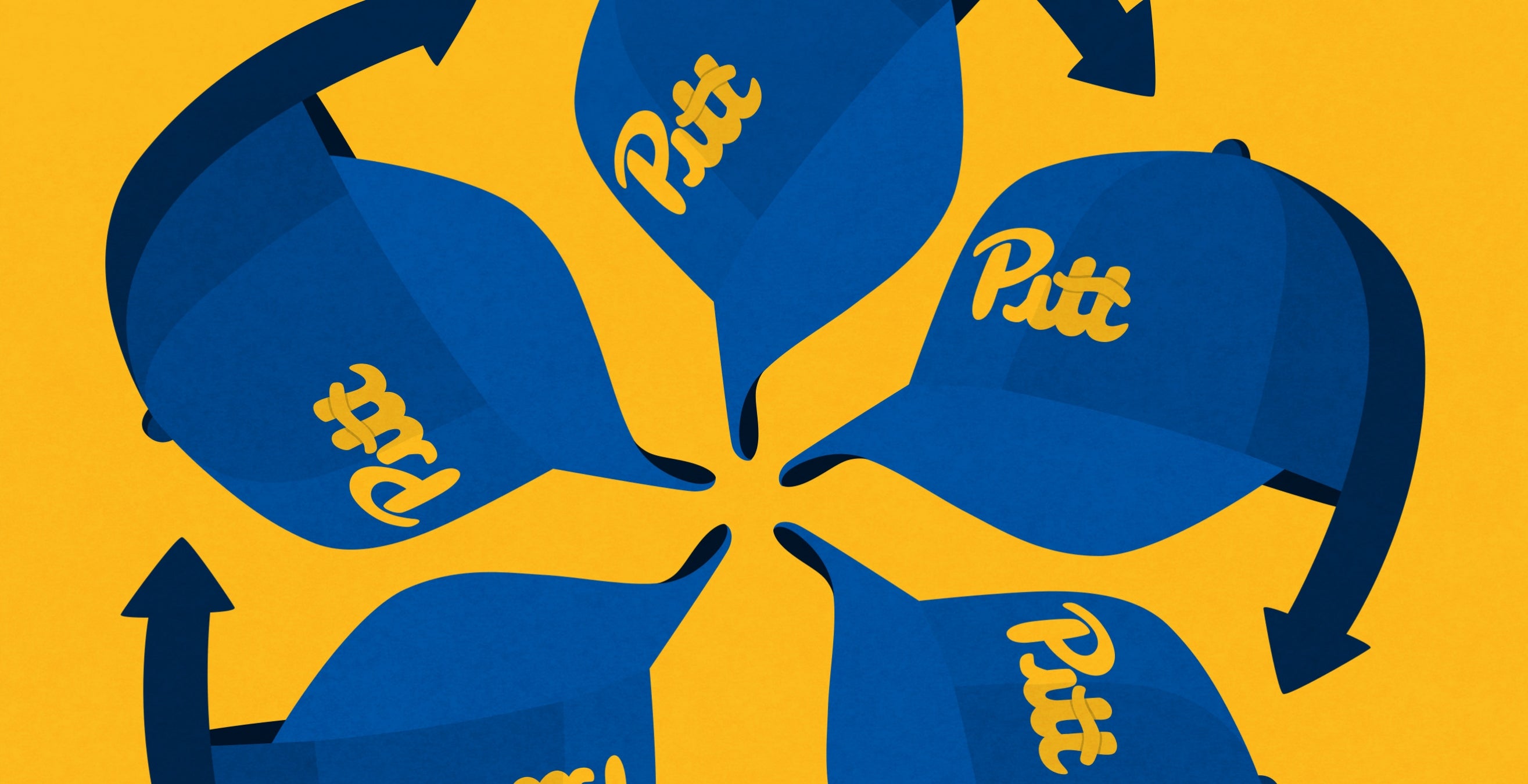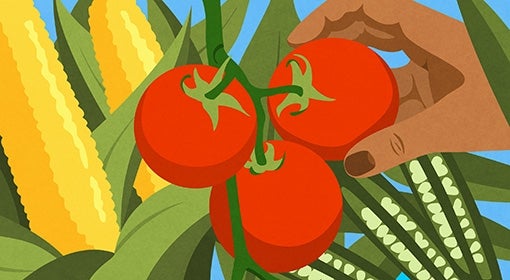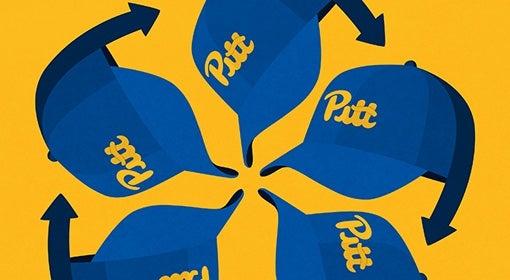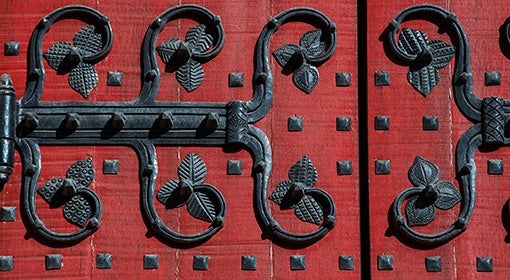One brisk Friday morning, sophomore Lucas Connell piles the trunk of his small sedan with vintage Pitt spirit wear. He might look like a Panther sports superfan with his plethora of yellow, blue and gold gear, but this apparel isn’t for him — they’re meant for business.
The computer engineering major takes the winding road from upper campus to Thriftsburgh, the student-run thrift store located in the O’Hara Student Center. He soon spots a line of students snaking down the city block. Many of them are waiting for him.
Once he’s set up, Connell — who is dressed to impress in his own Pitt attire, including a pair of custom sneakers covered in retro Panther heads — finds his booth packed with students. He’s excited and, by the end of the first hour, also dumbfounded. He’s already sold 80% of his stock.
Now, my whole closet is vintage or thrifted clothing, and I wouldn't want it any other way.
Lucas Connell
Elcon Threads is Connell’s Pitt-centered vintage clothing business. Thriftsburgh invited him to sell his wares at the store’s sustainability-promoting pop-up event last fall.
Connell readily agreed to participate. When he was younger, he and his older brother were always conscious of their fashion, outfitting themselves in the newest, trendiest menswear. Occasionally, his brother would thrift, and when Connell came to Pitt, he decided to do the same. A year later, it’s become a job he maintains alongside his schoolwork — but it’s also a passion beyond profit.
“Now, my whole closet is vintage or thrifted clothing, and I wouldn't want it any other way,” he says. “It’s different seeing the sustainability aspect of things as a grown-up and just how much new clothing is thrown away and discarded for absolutely no reason. Sustainability isn’t why I started thrifting, but the more you thrift, the more you see just how wasteful the whole cycle is.”
Connell acquires all his goods — primarily T-shirts, hoodies and hats — secondhand. He advertises on Instagram, where his following has grown to more than 5,000, and delivers most products to customers personally.
For college students living on a budget, sustainable shopping makes financial sense and is an easy way to support the environment. Jennah Reibsome, a sophomore environmental science major and the Thriftsburgh outreach coordinator, says inviting vendors like Connell to events helps promote the benefits of thrifting to students who might not be used to buying secondhand.
“I like that [Connell] is getting these vintage things and selling them back,” she says. “It's keeping a cycle of clothing in the market, instead of adding waste.”
While Connell favors the bright and bubbly royal blue and gold Pitt gear from the ’90s, he says the old royal blue and gold paraphernalia sells best. To advertise his product, Connell makes sure to add an extra Pittsburgh campus twist, posing shirts in front of the Panther statue or the Cathedral of Learning.
If the Thriftsburgh sale is any indication, Connell’s innovation seems to be a welcome addition to the growing community of environmental and earth-friendly enterprises at Pitt. At the end of the pop-up event, it takes Connell no time at all to pack up his car to head home. He says it feels like a reward of sorts, one that shows just how popular sustainability and fashion can be.
This story was published on January 26, 2023. It is part of Pitt Magazine's Winter '23 issue.





